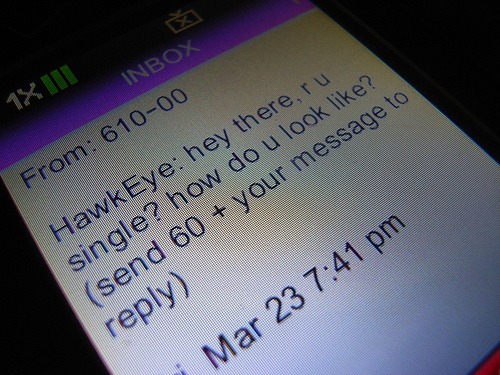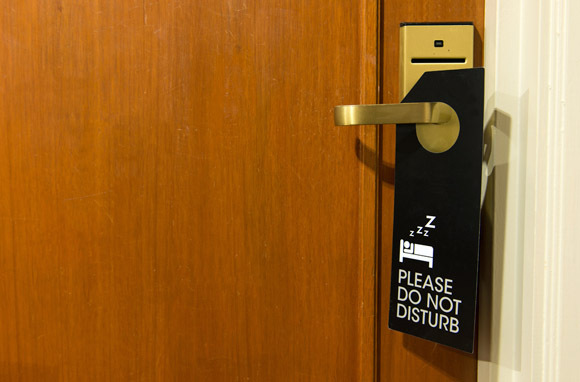The rise in the rate at which subscribers receive unsolicited text messages is alarming.
This prompted many people to petition the Nigerian Communications Commission, a body saddled with the technical and economic regulation of the communications industry in Nigeria. Their first response in 2014 was to challenge subscribers who are still being inundated with unsolicited text messages at odd hours of the day to sue telecoms operators involved for invasion of their privacy.
However, when this did not stop the volume of the SPAM messages users get; the complaints prompted the agency to take a bolder step – the “DO NOT DISTURB” policy. The Do Not Disturb service allows customers to opt out of receiving promotional messages from 3rd Party services (Bulk SMS, VAS promos, etc.) which can be activated partially and fully. While the service should be applauded, the current implementation of the Do Not Disturb, especially by the Telco operators, leaves a lot to be desired.
Let me explain.
The two types of SMS traffic
While many of us may not realize, there are two types of SMS traffic sold by Telcos or bulkSMS vendors like Infobip or local players like eStoreSMS.
You should think of the SMS gateways like two different highways. If one of them has a toll-gate and the other is free to use, which do do think will have more road users and traffic? Hence, the major differences between the two types of SMS traffic is the cost, restrictions and delivery rate.
The first one is Transactional SMS traffic. This is often used by banks to send you transaction alerts. The cost per unit of this type of SMS is more expensive; that is while a lot of customers do not use it – including some micro-finance banking institutions. The second type is promotional SMS traffic. This SMS traffic is cheaper, that is why a lot of VAS activities are carried out on this gateway which has now been abused by many bulkSMS users.
What you probably don’t know about the Do Not Disturb policy
The current implementation of the DND policy only affects the promotional type of SMS traffic which is responsible for less than 30% of the unsolicited SMS that you receive every day.
While there is nothing good about receiving unsolicited messages, it is important to note that some businesses will suffer as a result of this development.
Suggested Read: The NCC’s Do Not Disturb code is disturbing businesses on a grand scale.
Also, it will negatively affect everyone because subscribing to DND simply means you will not receive all messages sent to your phone via bulk SMS and other third party application which maybe important to you.
We all know that we receive a lot of important messages from our churches, Banks, wedding, school, job interview, and events which are sent via bulkSMS service.
Take the following scenarios:
- You can no longer receive messages sent via a bulkSMS platform. This includes messages from your cooperative groups, religious affiliations and so on.
- Alerts from Microfinance institutions and any organization that sends your notification or confirmation messages via bulkSMS will not be delivered.
- Any VAS subscription you were duly subscribed to will be cut off.
- A more dreaded example is to imagine the reality of missing a job interview, because you did not receive the interview notice that was sent by bulkSMS.
In all honesty, these are use cases for promotional SMS by individuals, small businesses and institutions that cannot afford to pay the huge rate of transactional SMS traffic.
What should you do next?
You need to review what you stand to gain or lose based on your current DND status. The not-so-good part is that 90% of users have been automatically enrolled to Do-not-Disturbed plans without their notice.
- To confirm the status of your line send “STATUS” to 2442.
- To get more information about the service, send HELP to 2442.
- To opt out of DND, text ALLOW to 2442.
The bad news: DND does not affect messages those boring messages from Telcos
The new DND feature has not solved the problem of subscribers; it has only reduced the number of messages. What is the point if the Do Not Disturb policy does not cover promotional messages from Network providers who have not stopped spamming us with messages like “WowWeekend”, MTN special Offer. MTN beta talk, MTN win Million, Glo Data Overload, Callertunez, Etisalat free promo, Glo 1212, Airtel 50017, Airtel 98630, Airtel 38265, Airtel 98630, Airtel 8511, Airtel 22177, Airtel 38296 and others.
What Nigerians really need is an option to opt out from several unsolicited messages, including the ones they get from their network providers, especially the ones that arbitrarily deduct their airtime credit.
What do you think about DND, do you think it is good or bad?







